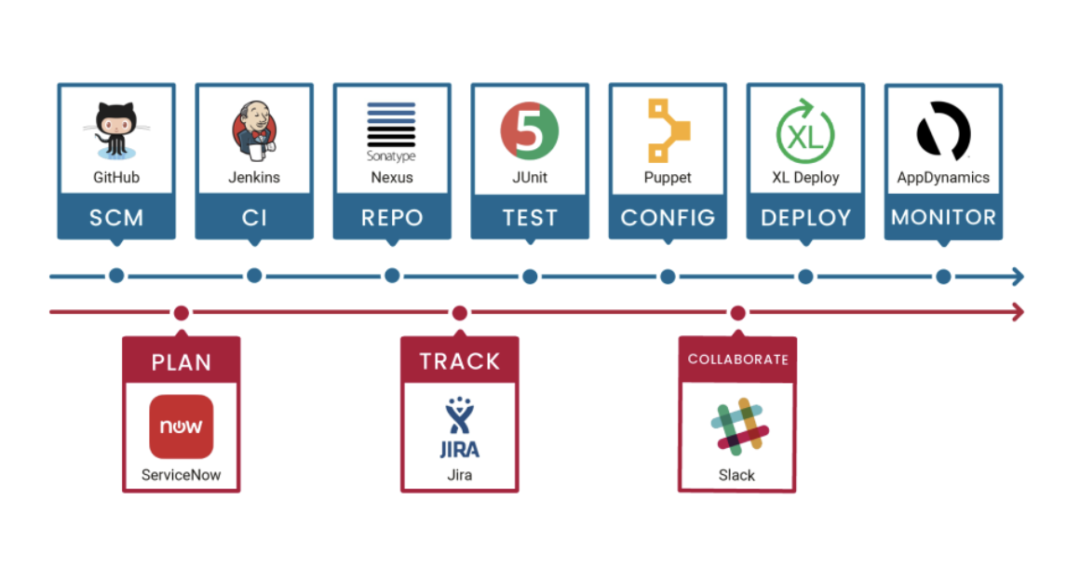DevOps mobile app development has allowed the mobile industry to become the primary source of information for humans across the globe.
Over the last few years, multiple industries have been forced to adapt towards the rise of the business app user. To cope with this shift, they have built their own business apps for mobile users.
With this shift, the IT industry has focused more on market demands; businesses are concentrating on creating a new market presence by giving more priorities on app development costs, security, maintainability and code quality.
In this article, we will be discussing approaches of DevOps mobile app development by looking at some of the major challenges and best practices to overcome those hurdles. Let us begin with some basic terms.
How DevOps works in the enterprise
What is DevOps?
A modern software engineering approach focusing more on effective collaboration among the project managers, developers and operations staff by aligning with enterprise objectives is termed as DevOps. Before this, the conventional techniques used to lack the powerful coordinated effort among various departments of Software development which lead to more time-consuming in development and user dissatisfaction.
How to adopt DevOps for your business?
Mobile applications are designed for smaller screens with different touch outputs as compared to web apps. It needs to be implemented using a few tactics which are also known as the basic rule of thumb for adapting to DevOps in your business.

Phase #1 Agile Planning
It is the foremost and most crucial step by bringing all your entire team of developers, BAs, testers and operation teams to determine the scope of the app in its preparation of a release plan.
Phase #2 Constant Integration
This phase helps in addressing the developers community by focusing on error-free builds by following the best practices and standards of the version control.
Phase #3 Proper Testing
It is a vital element of software development lifecycle by ensuring the quality of the product delivered to consumers. The phase emphasis on automation of all the remaining phases of Software testing.
Phase #4 Accurate Monitoring
This phase ensures that the app is performing as per the desires and it is also stable in the production environment no matter what the frequency of changes occur despite any human interaction.
Phase #5 Faster Delivery
It is a safer practice to ensure that the code is ready to deploy to the production environment by accepting every change to a production like an environment.
Phase #6 Continuous Deployment
Every bit of change that passes through automation tests has to get deployed to the production environment automatically.
 DevOps resources
DevOps resources
What is the right storage software needed for DevOps to be a success?
3 DevOps pitfalls and how to avoid them
DevOps and CloudOps: The connection behind digital transformation acceleration
Why DevOps must become BizDevOps for business and IT collaboration
Best DevOps practices for 2019
Why do we need DevOps? For the business and consumer
Benefits of mobile DevOps
Before DevOps, developers used to write hefty codes and convey it to the operations team but DevOps has made it a lot easier by bringing the development and operations team on the same page. By adapting to the DevOps process, the responsibilities are distributed equally among the variant teams with a single goal and clear visibility of app performance. We can gain tons of benefits by adopting DevOps, such as:
Improvised customer experience
Nowadays, the user experience is one of the crucial factors which enables instant reporting and feedback, regression testing, and transparent development process that results in fast troubleshooting of errors for optimised user experience.
Other benefits include more some of the product development benefits for faster results. Adopting mobile DevOps in your organisation offers:
• Content software delivery
• Faster solutions of bug fixes and problems
• High employee engagement
• Faster product delivery
• Improvised support and flexibility
• Fewer chances of product failure
• Increase in efficiency
• Stable environment for easy deployments
• Extra time for innovation
DevSecOps: how can companies embrace it?
What are the challenges of adopting DevOps mobile app development in your business?
We can clearly see that the basic principles for adopting DevOps in both web and mobile apps are similar, but still, there are certain challenges while thinking to go for DevOps in mobile app development that includes:
Multi-platform support and mobile app testing
Mobile apps have various target environment that mostly targets different devices, OS versions, hardware specifications and much more. Nothing can be worse than a 1-star rating for the mobile app as unsatisfied customers can harm your brand name publicly with the help of mediums like App Store or Play Store. Hence, it becomes crucial for your business to do rigorous testing by using all of functional, usable and performance testing techniques.
Dependability on App store
Most of the times the apps that cannot be deployed directly goes via the app store. This medium acts as an extra step in the process which delays the app deployment in the user device by restricting the developers to push some direct updates and critical bug fixes in the app.
We hope you got the basic tactics of how to implement mobile DevOps in your organisation. Keep learning!

Nominations are OPEN for the Tech Leaders Awards, organised by Information Age and taking place on 12th September 2019 at the Royal Lancaster, London. Categories include CIO of the Year, CTO of the Year, Digital Leader of the Year and Security Leader of the Year. Recognise and reward excellence in the tech industry by submitting a nomination today










